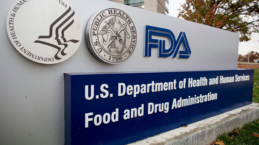

insights
Pulling the Thread on FDA’s Master Protocol Draft Guidance
The U.S. Food and Drug Administration’s (FDA) draft guidance, Master Protocols for Drug and Biological Product Development, released on December 21, 2023, provides expanded recommendations on the design and analysis of trials conducted under a master protocol. A master protocol is a protocol designed with multiple substudies, which may have different objectives and involve coordinated efforts to evaluate one or more medical products in one or more diseases or conditions within the overall study structure.
Previously, the FDA issued two guidance documents regarding master protocol trial design and analysis. The first guidance, issued in May 2021, addressed the COVID-19 public health emergency with specific recommendations to sponsors for developing master protocols to evaluate drugs for the treatment or prevention of the disease during the global pandemic. This draft guidance was only intended to remain in effect for the duration of the public health emergency and is set to expire in March 2024. The second guidance, issued in March 2022, focused on drugs or biologics for the treatment of cancer as a targeted strategy to expedite late-stage drug development.
The most recent guidance expands on the FDA’s previous recommendations related to master protocols, promoting application across a broad range of therapeutic areas.
Carefully designed master protocols allow collaborative sharing of clinical trial elements (i.e., control arms, infrastructure, and oversight), facilitating a streamlined approach to maximize data collection and accelerate drug development. A master protocol designed with multiple substudies can evaluate one or more investigational products in one or more diseases, creating an efficient approach to expedite drug approval and potentially remove barriers to patient recruitment.
We hosted an internal workshop at Halloran, collecting responses and feedback from consultants to share with the FDA for consideration. Here is our collective review.
Five Key Watchouts to Consider
Halloran provided the FDA with feedback on the draft guidance; Overall, our team believes the guidance will be an excellent resource to any clinical trial sponsor considering a master protocol. However, there are five key areas in which Halloran felt the FDA needed to provide further guidance.
Operationalizing a Master Protocol
The guidance acknowledges the many complexities associated with operationalizing a master protocol, such as blinding across multiple studies and ensuring proper communication amongst the many stakeholders. However, we would like to see more recommendations from the FDA on what sponsors can do to avoid potential mishaps due to these complexities. Such recommendations will help sponsors to implement the proper mitigation steps early on in their development process.
Master Protocols to be Submitted to the FDA as a New IND
The draft guidance states each master protocol should be submitted to the FDA as a new Investigational New Drug (IND) application. The agency specifies several considerations for master protocol IND applications but does not address the master protocol IND review process.
For example, if the agency finds the information provided in the master protocol IND application supports the initiation of all but one of the proposed clinical substudies, would the agency place that single substudy on clinical hold while allowing all other substudies to proceed with enrollment?
Our team believes this answer is a critical point for the agency to clarify as it will likely be a strategic consideration for many sponsors intending to submit a master protocol IND.
Complex Statistical Analyses Requirements
Master protocols are likely to require complex statistical analyses in which comparisons are made across multiple study plans. Therefore, it is critical that master protocol sponsors consult with a statistician who is experienced in such analyses when developing their study design and statistical analysis plan. Furthermore, sponsors should get full buy-in from the FDA on their proposed study design and statistical methods prior to initiation of the study.
Changes to the Informed Consent Form
Changes to the informed consent form (ICF), over time, present a challenge in maintaining consistent data, particularly in platform trials where drugs are allowed to enter and leave the trial. FDA should emphasize that this process should be carefully managed to ensure comparability of subjects across substudies.
The informed consent process should occur before a patient’s randomization and avoid substudy-specific consent. Consent that occurs after patients have been randomized to one of the substudies may result in patients with different prognostic characteristics across substudies, raising concern about the comparability of each drug group with the shared control group (comprised of control patients from different substudies).
Criticality of Oversight
Oversight is a critical component of a well-conducted trial utilizing a master protocol. The FDA highlights the need for the sponsor to appoint shared oversight committees (i.e., data monitoring, steering, etc.) to coordinate the successful conduct of the trial.
Data integrity deficiencies are a critical risk to mitigate early in the master protocol trial design. Due to the extensive coordination required to successfully conduct a master protocol trial, it is essential that master protocol sponsors and individual drug sponsors establish communication plans and data management plans early on, mapping out how information will be shared in a compliant manner across the teams.
With the FDA’s focus on data integrity, it is imperative that master protocol sponsors understand how to coordinate their data ecosystem to minimize errors, alleviate issues in oversight, and address inconsistencies in data handling, analysis, and reporting.
The Halloran Edge
While the implementation of a master protocol may seem complicated, there are experts available to help guide you on your way from early planning through study closure.
During the strategic planning phase, Halloran consultants develop the roadmap for their client’s master protocol, apply relevant regulatory and compliance guidance, provide recommendations on clinical trial design considerations, conduct an early risk assessment, and provide project management support.
The master protocol guidance highlights the need for early interactions with the FDA and Halloran’s regulatory experts, in partnership with our clinical experts, are here to help you coordinate and manage regulatory agency meetings, provide recommendations on strategy, assist with IND submissions, and provide ongoing regulatory support.
Operationalizing master protocols can also pose distinct challenges including enrollment, randomization, informed consent management, data capture, and other electronic systems, all requiring extensive coordination with multiple key stakeholders. Halloran’s clinical team can develop the master protocol and relevant key study documents and plans due to extensive experience in Contract Research Organization (CRO) and vendor selection, management and oversight, and clinical trial and risk management activities.
Additionally, an organizational assessment can highlight where you may have any gaps in resources, expertise, Quality Management System (QMS), software, data integrity, and documentation, and when you may be due for organizational transformation. We have the experts on hand to ensure your master protocol is inspection-ready and the applicable systems and processes are complete and robust.
To further the discussion, contact Halloran.



